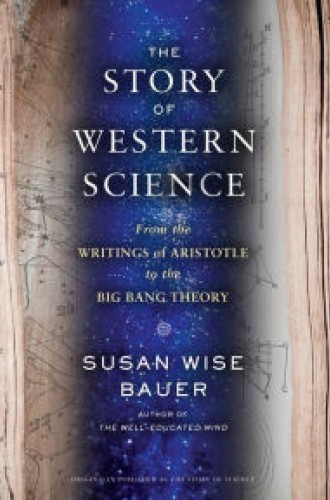The complex, beautiful history of science
Susan Wise Bauer, a wide-ranging scholar who formerly taught at William and Mary, provides both a short course in the history of science and, for the ambitious, a syllabus for a whole degree. She chronicles the path science has taken from its emergence in Greece 2,500 years ago, to its refinement in the scientific revolution of the 17th century, to its present status as the caretaker of knowledge critical to the future of our species. Bauer’s telling crackles with adventure and surprise. The book is an easy read.
For readers who want to dig deeper, Bauer ends each chapter with a short bibliographic essay, pointing to the most accessible versions of the original texts on which her story is built. Many of the sources are available online, and in all cases she explains which translations are clearest and have the most helpful notes.
The Story of Western Science tells several related, overlapping stories. The most obvious is the story of how the best minds of our species figured out how the universe and many things in it work. This story is braided—like the double helix Bauer describes in the chapter “The Secret of Life”—with the story of discovering the best methods and most ingenious techniques for interrogating nature and for coaxing nature into revealing its many secrets. The secrets uncovered by science have often been startling and counter to intuitions about how the world is. As the scientific method developed, researchers were forced to stop asking Mother Nature why she behaved as she did and what purposes were being served by this or that phenomenon. It turned out that these were secrets she would not reveal.





